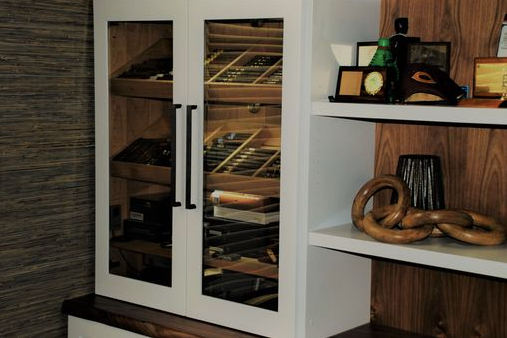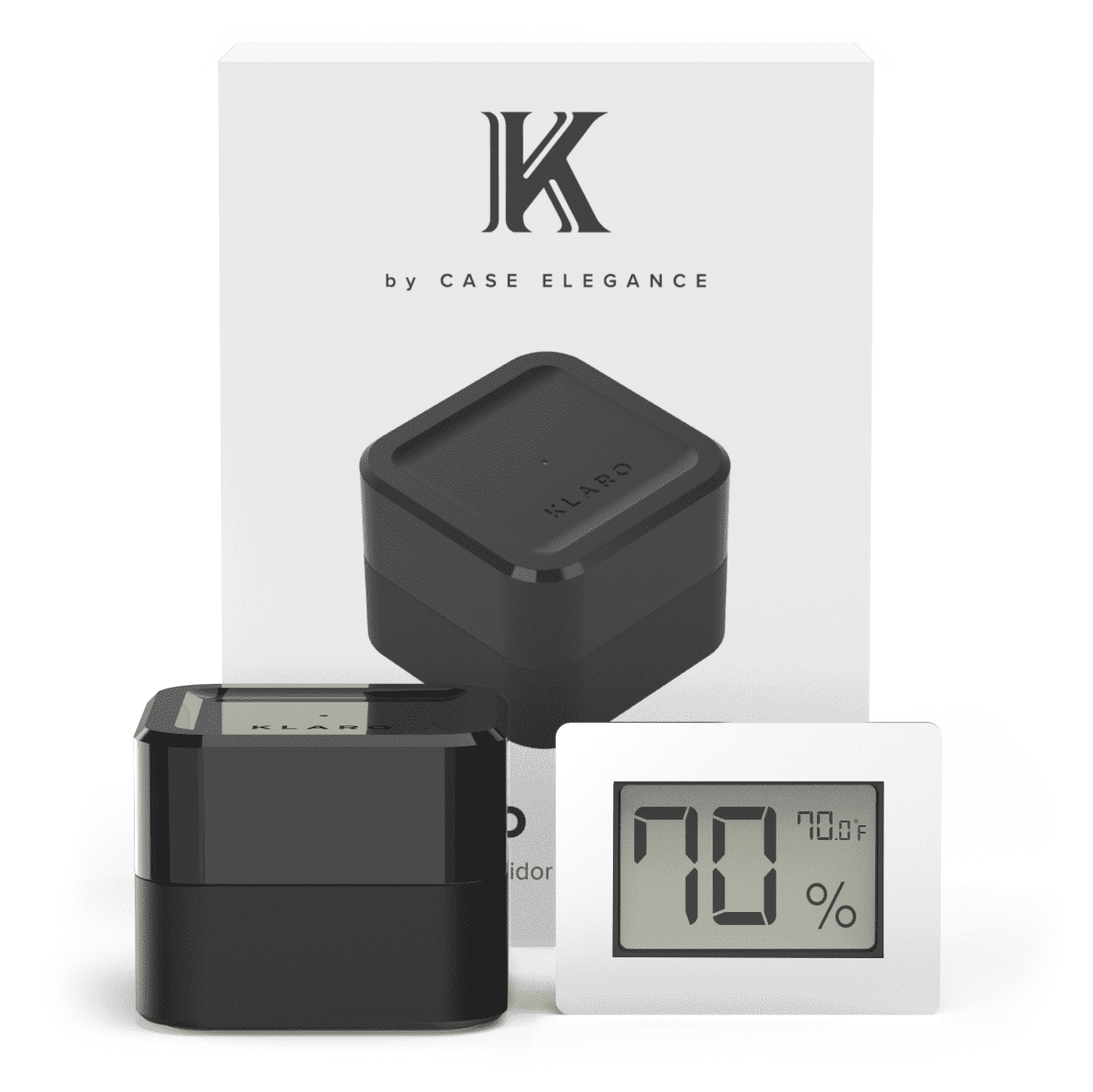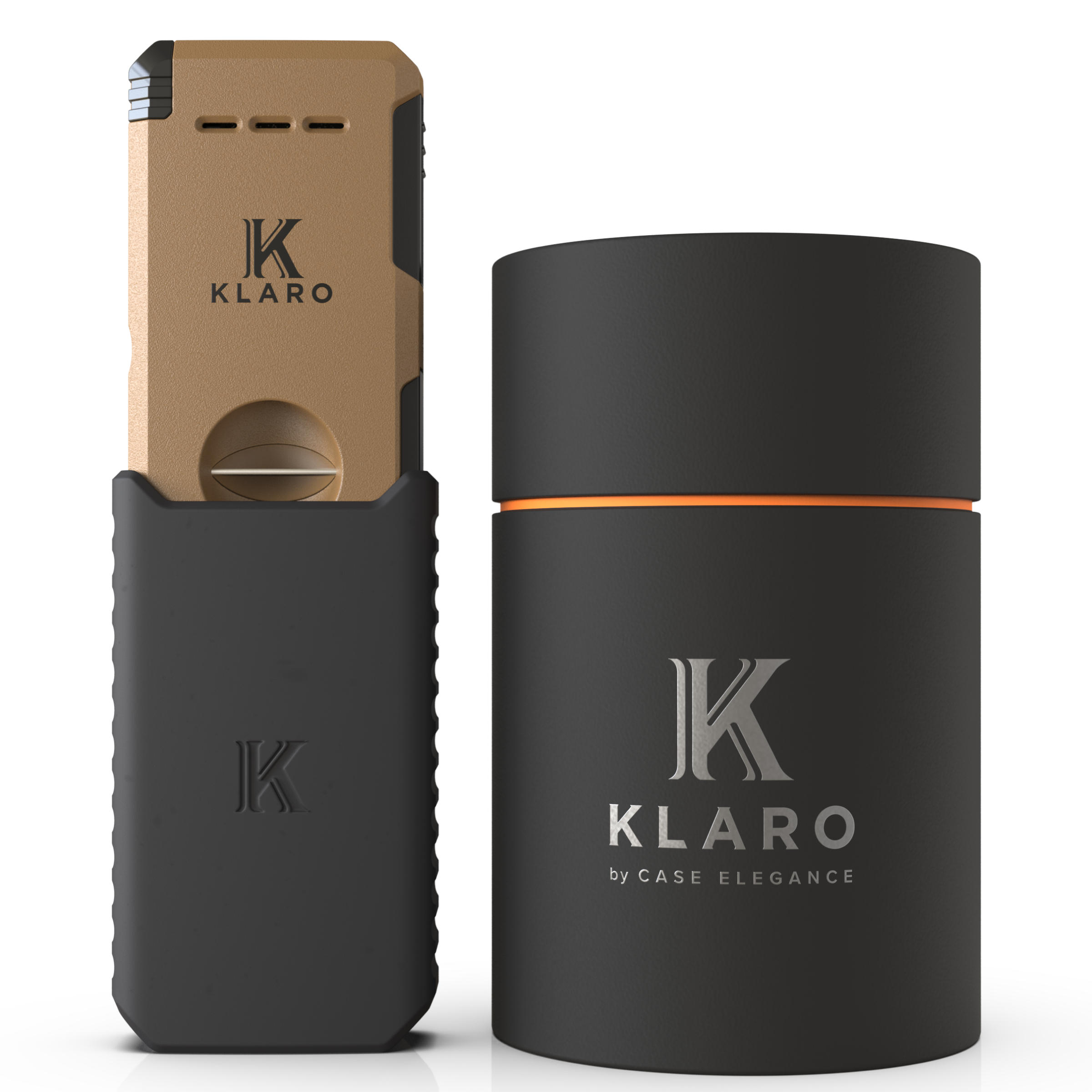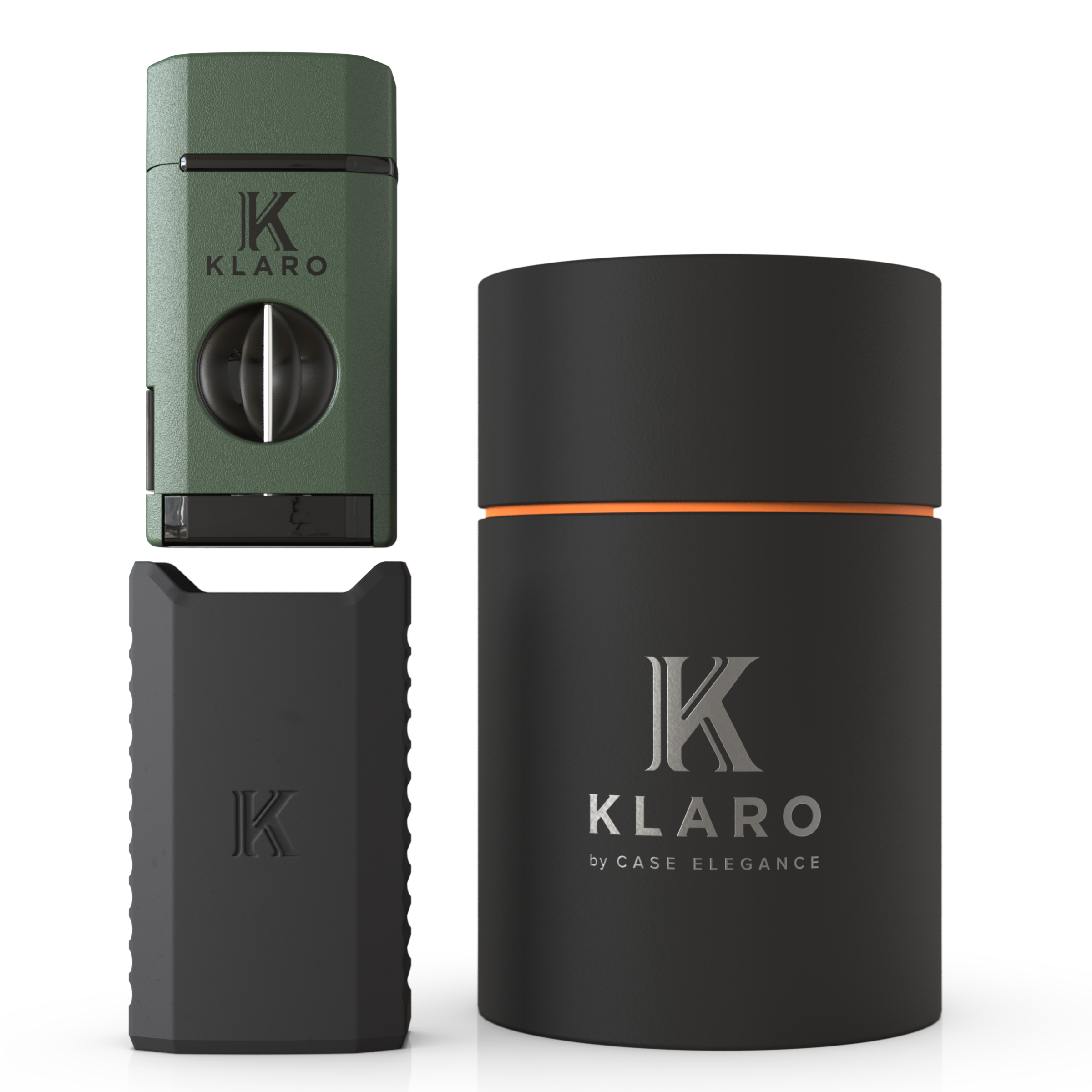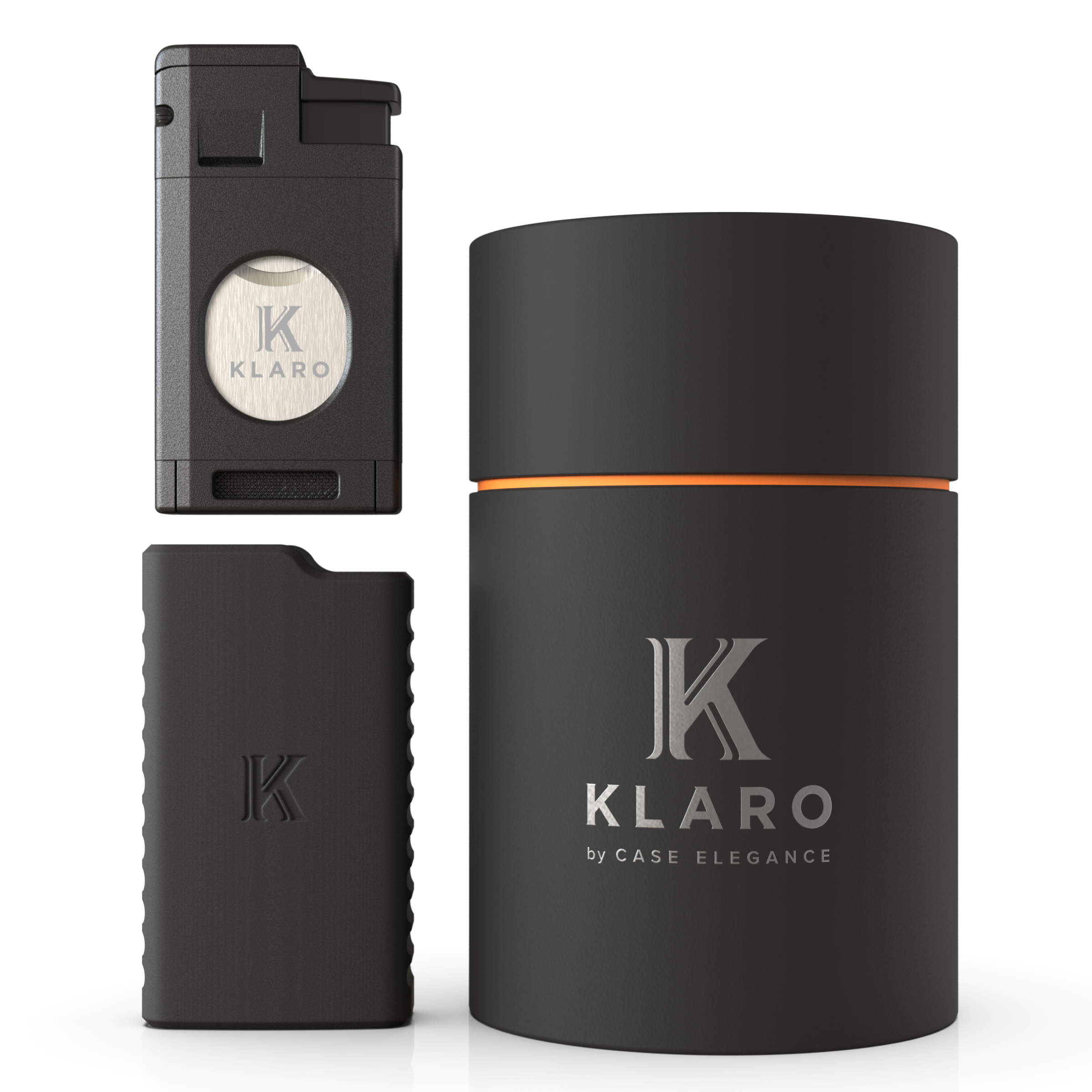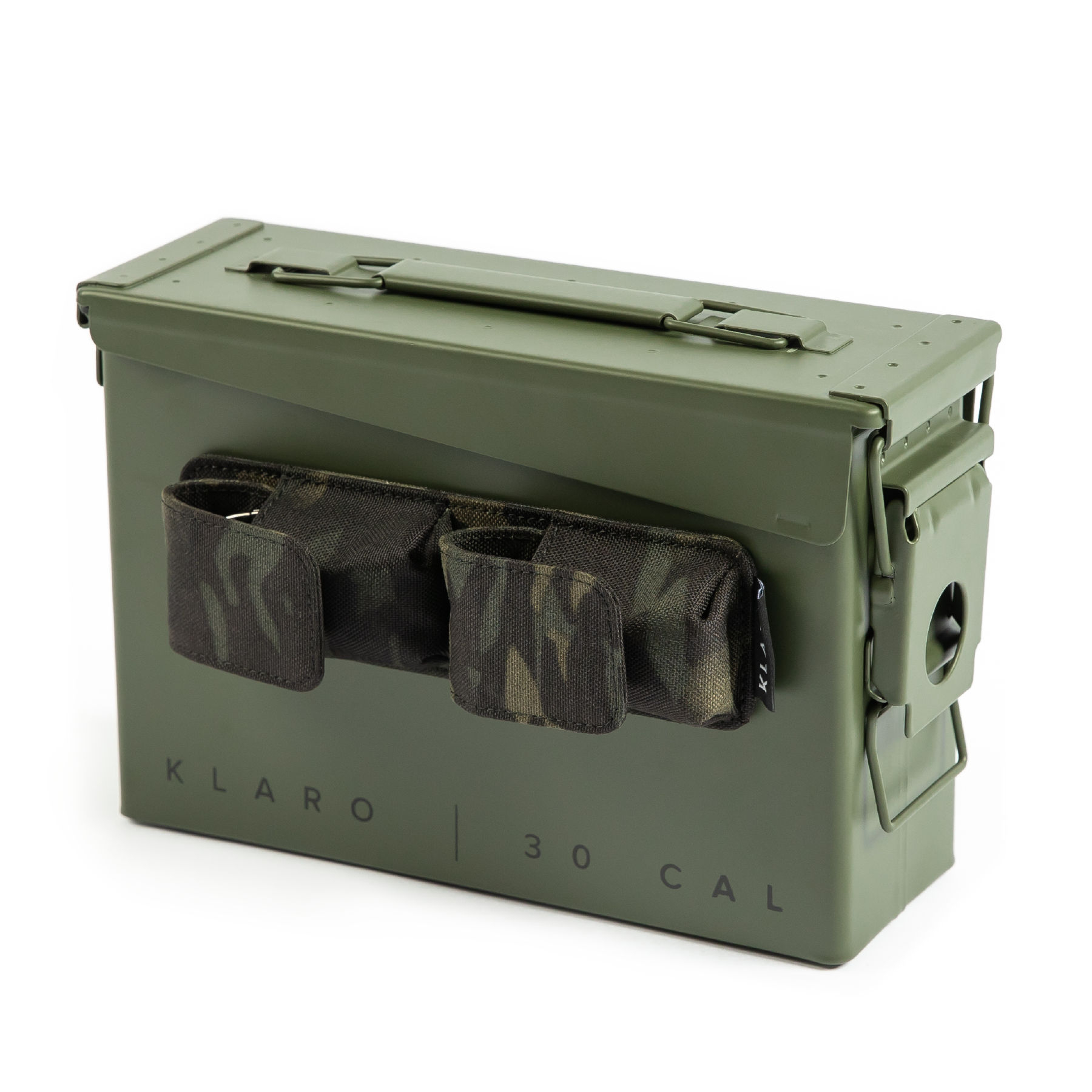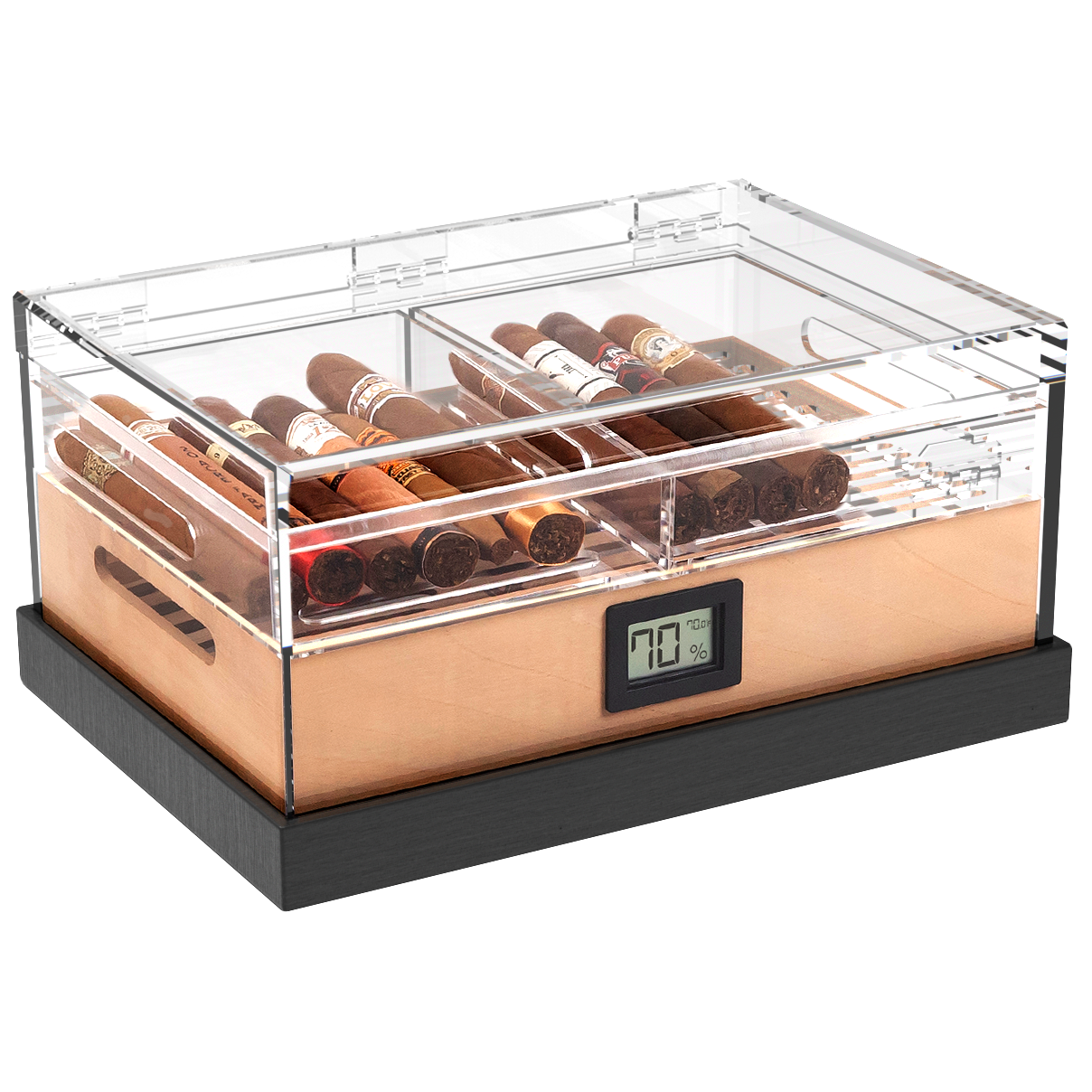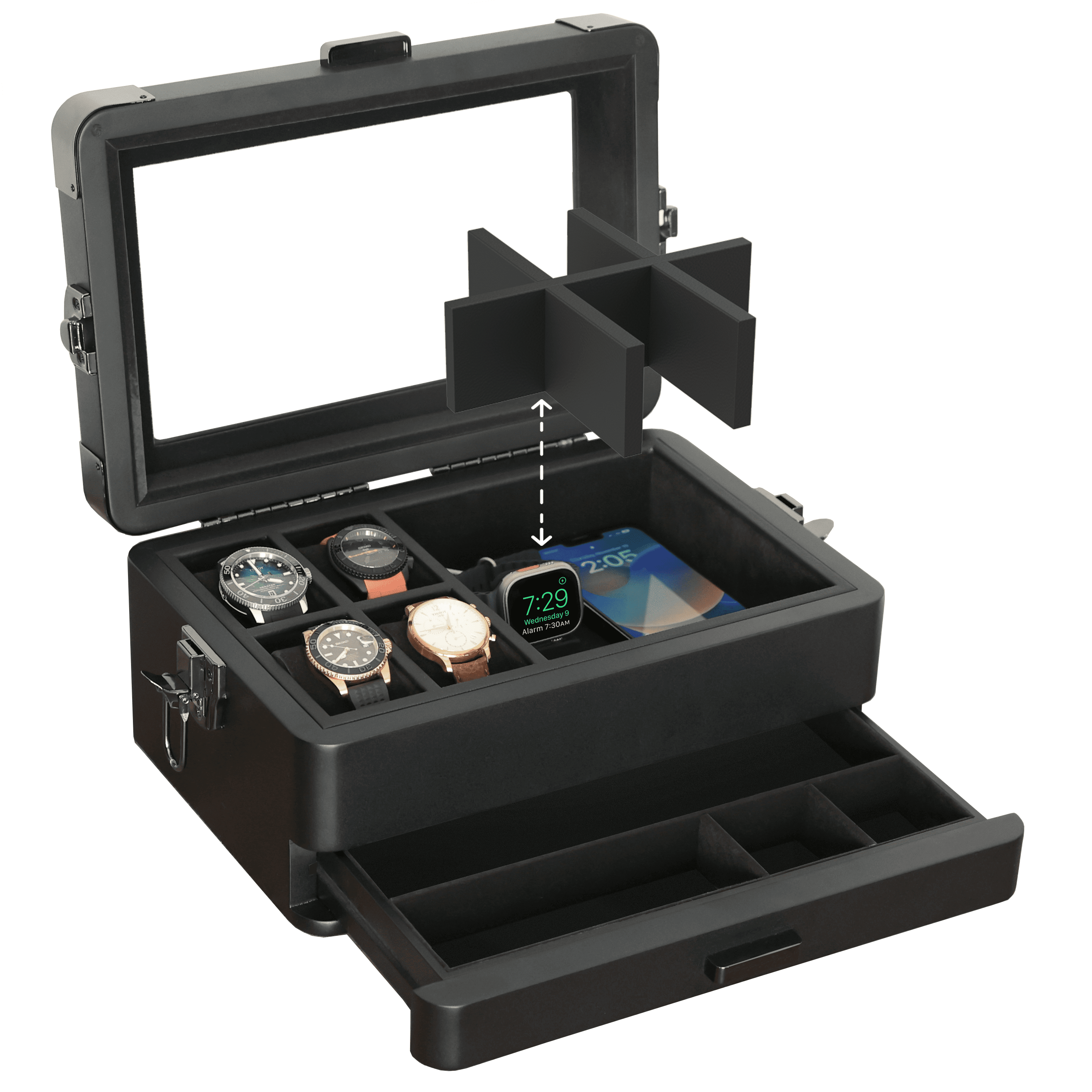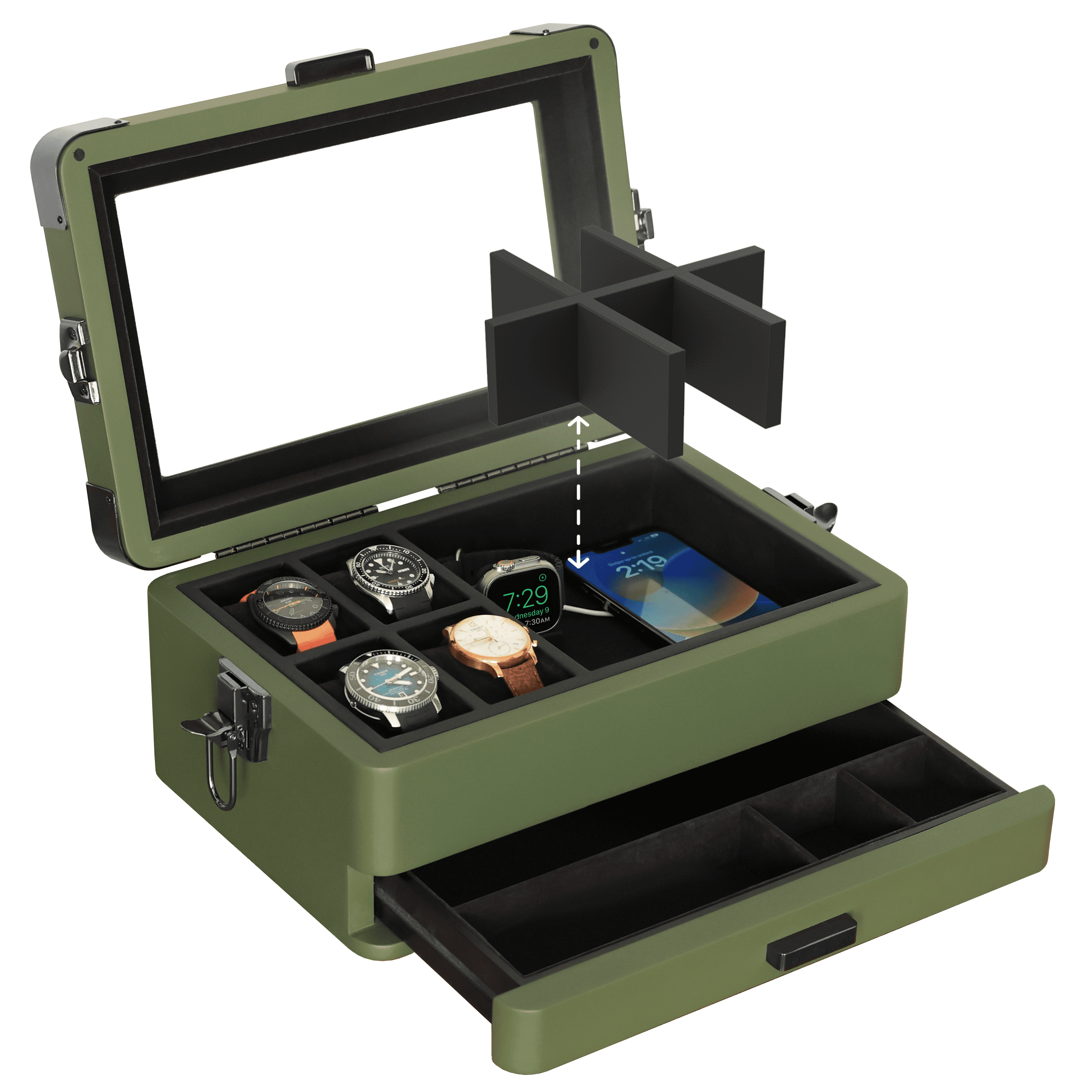
Cigar smoking saw a rise in popularity during the pandemic when folks were required to stay at home and had extra time to reignite interest and invest time in hobbies, cigars included. Many who increased their cigar frequency have continued, and the popularity of cigars is only expected to increase, with a projected 11% growth in the next five years (2022-2027).
For businesses, now might be the perfect time to consider including cigars in their retail brick-and-mortar locations. But there’s some strategy involved, like obtaining the legal ability to sell (and smoke) cigars at your location, and the logistics of carrying and protecting a significant investment of perishable cigar inventory.
So what’s the best strategy for a commercial business to sell cigars onsite? Knowing your cigars, knowing the market, and knowing your customers will determine the details of how you order, store, and protect them. But the issue of choosing a humidor is at the forefront of those questions. And we’re here to help you decide what’s right for you.
Do I Need a Humidor?
There’s an ever-growing market for handmade cigars. Still, any company considering incorporating them into their business model needs to be prepared for the reality of a limited shelf life product that diminishes quickly if not stored correctly. Whether selling a small inventory of select cigars or running a full-throttle cigar shop with thousands, the goal is the same.
If you plan on storing cigars in any capacity, a humidor is a must. Consider this an investment in your product as necessary as a refrigerator for a restaurant. Humidors maintain humidity levels during storage to keep cigars at their optimal smoking condition. Too humid, and cigar tobacco smolders when lit, or even molds inside the humidor. Too dry, and the tobacco becomes brittle, cracks, and smokes unevenly, effectively ruining the smoking experience for customers.
By keeping humidity levels between 62% to 74%, you extend the life of your cigars, keeping them safe from mold or dryness and in the perfect condition to experience the flavors of the tobacco. A quality humidor with an accurately calibrated hygrometer, Spanish cedar components, and a humidor humidifier system will ensure your product is protected and maintains its value.
When selling cigars, you can’t predict how long a cigar will sit on the shelf before it’s purchased. Unlike at home, you aren’t the one deciding which gets smoked next. For that reason, you have to maintain the longevity of the cigars to maintain their value. That’s why it’s especially important you get a reliable humidor system.
Tobacco Nerd Note:
As you’d expect, selling cigars at a retail shop comes with its fair share of regulations to consider. In fact, a humidor is one of several criteria cigar bars must meet to receive an exception from smoking bans. So, actually, owning a humidor is a necessary feature if you want to be able to smoke at your place of business.

What Type of Humidor Should My Business Use?
Capacity is generally the first question to answer when it comes to choosing a humidor. But remember that humidors in commercial spaces serve two functions–to be functional, yes, but also to achieve a certain aesthetic in your business.
Function
Start with capacity: how many cigars do you plan to carry in-house? In the same way you would consider minimum/maximum levels for other inventory, you need to know how many cigars you expect to sell over a period of time. Humidor capacities for smaller businesses range anywhere from twenty cigars to four thousand. This will dictate the type of humidor you will buy: anywhere from a small desktop humidor, to a humidor cabinet, to a walk-in humidor.
For larger-sized humidors, you may consider a customized build, as these can be tailored to your exact space and the dimensions you require. These generally come at a higher price point and are often the choice for shops specializing in cigar sales as opposed to a tobacco shop who is only featuring a small selection of cigars.
Keeping your commercial inventory in good condition involves taking the same steps as you would with a home collection: monitoring humidity levels regularly, seasoning your humidor, and, depending on the size of your humidor, rotating cigars periodically.
Aesthetic
The look of the humidor matters, and not just for large humidors that take up considerable space in your shop, bar, or lounge. Many collectors consider humidors furniture pieces, and their physical appearance is as relevant as their ability to protect your collection of cigars.
Humidor cabinets are large, and they’re going to take up a considerable amount of real estate in your shop, so finding one that matches your aesthetic is important, whether that’s more of a classic, double-door style or the modern-designed Frigador humidor cabinets.
Can I Use A Desktop Humidor in My Commercial Business?
Don’t discount the desktop humidor, even for a commercial business. For those just introducing cigars into their retail offering, carrying 75-100 cigars might be the perfect trial run to get a reading on customer interest. Plus, it’s a chance for you to learn the ropes when it comes to maintaining a cigar inventory: monitoring sales to set stock, practicing seasoning, and learning how the natural humidity of your location might affect the inventory of cigars.
And when it comes to aesthetics, you can find great glass top humidors that fit the style of your shop–whether that’s a more classic design or something modern and eye-catching. Further, glass top humidors are better for the longevity of your cigars. Customers are less likely to repeatedly open the humidor box, exposing the cigars to unregulated air, which could affect their moisture content.
Klaro humidors offer several large models that have a higher capacity than many tabletop humidors, giving you the ability to carry extra inventory. Selections like the Octodor and the Military Glass Top Humidor offer convenient amounts of space and are proven to provide optimal control over humidity levels. Not only are these spacious enough for a modest collection of commercial inventory, but they store cigars professionally with little, infrequent maintenance. For a golf shop, corner store, or head shop, a larger Klaro model is the perfect unit to begin your commercial cigar offering.
Is A Humidor Cabinet Right Even if My Selection Is Small?
When considering humidor cabinets–or humidors in general–the biggest thing to keep in mind is capacity: how many cigars do you really need to store? A humidor works by controlling humidity levels in a confined space. And the number of cigars stored, or the percentage of a humidor’s capacity used, will influence the humidity levels. Too many cigars and the humidity levels will be too low; you will have to refill your humidifier often. But
The thing about stocking humidor cabinets–and humidors in general—is to consider humidity distribution. The more real estate inside the humidor, the more you’ll need to consider airflow and ensure that the right humidity distribution occurs so one section of the humidor isn’t less or more humid than another. This can be done by including a digital hygrometer at multiple locations within the humidor cabinet or walk-in humidor.

What Businesses Benefit from Selling Cigars?
Tobacco stores, lounges, and bars can all increase their profitability by including cigars in their inventory. But those are the traditional spots, and there are other businesses that can expand their offering by including a humidor or two in their lineup.
Tobacco shops that primarily sell cigars will almost always warrant a walk-in humidor. Their primary inventory is cigars, and unless they choose to purchase multiple humidor cabinets, it’ll be difficult to maintain a worthwhile stock without a walk-in humidor.
Bars and clubs, too, can benefit from adding cigars into their lineup. For them, controlling temperature within the humidor is a helpful feature, and you will often see these locales operating a frigador humidor cabinet where they might also store wine to control temperature.
But what about the other commercial locations that would benefit from carrying cigars? Consider golf courses, where the clientele is likely to pick up a few stogies before a round. Even a desktop humidor might suffice here. Gas stations and convenience stores near sports venues might experience the same interest in cigars. Liquor stores, too, can expand their offering to include cigars.
It’s all about identifying the needs of your customer and creating an offering that lines up. With the right humidor, cigars are an easier inventory than many might think, as long as you can dial in the right setup.

